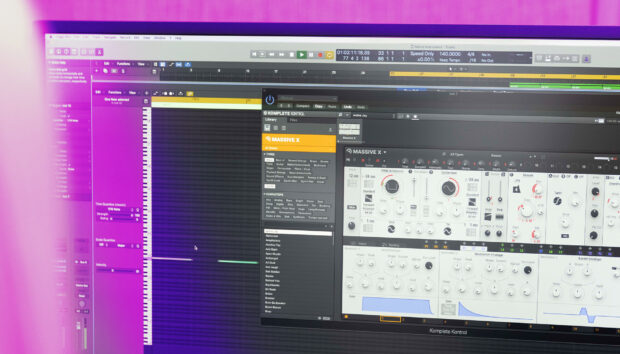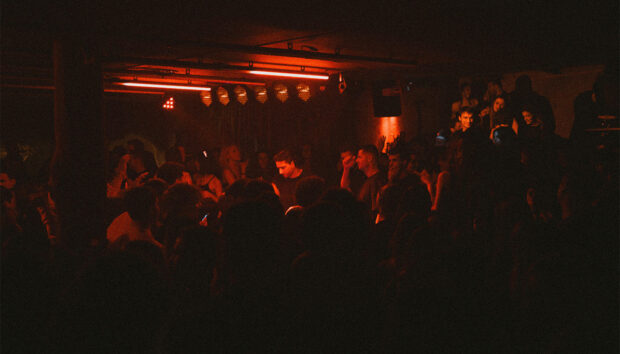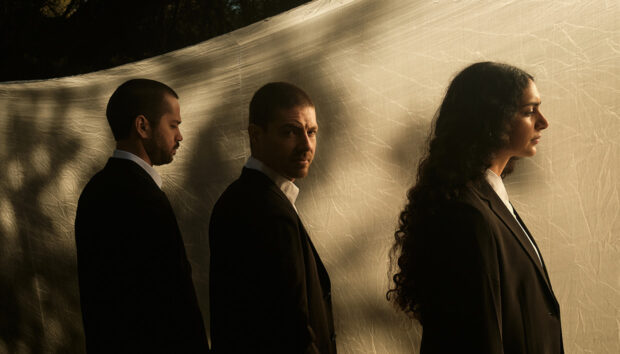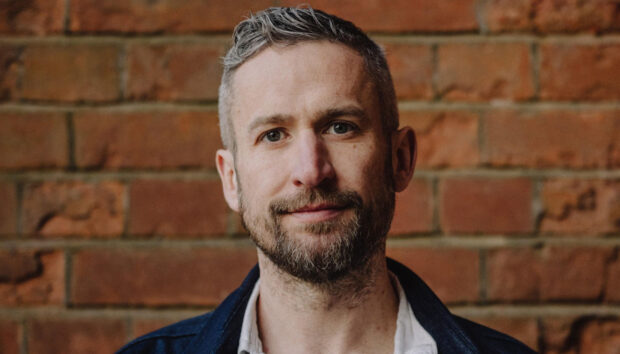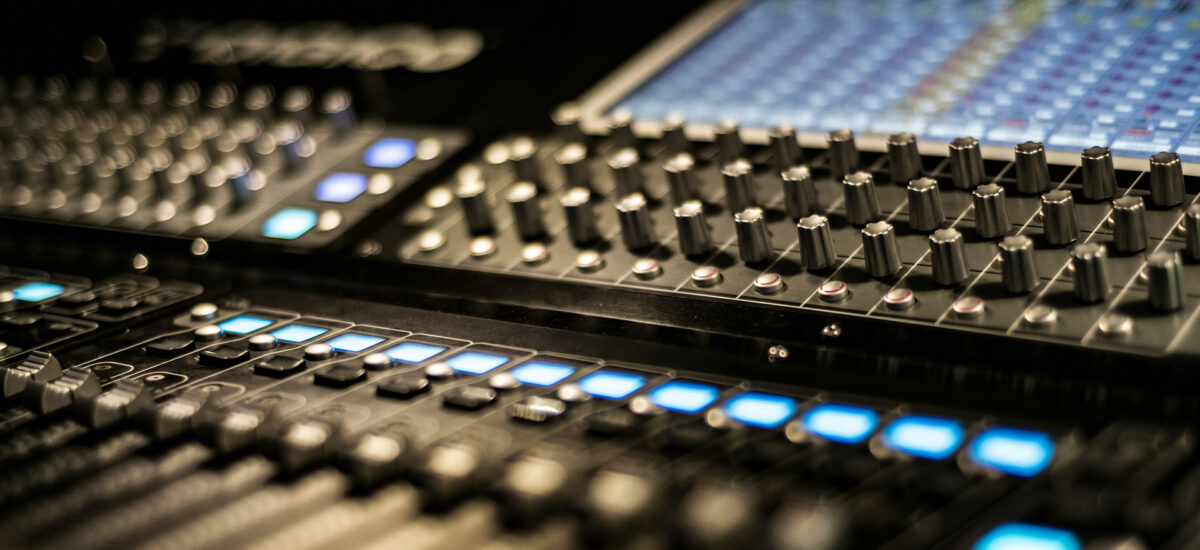
Think of the films you love. Do you hear a sound? Whether it’s the soaring melodies of Star Wars or E.T., the twanging guitars of old Westerns, or the synthscapes of Blade Runner, music brings great movies to life. Composing for film is a rich artform that has given us some of the finest music of the past century.
In this article, we share ten of the greatest film composers of all time. Some of them helped set the foundations of film scoring. Some imagined bold new directions. And some have developed a sound that’s entirely their own. Each of these famous film composers has given us unforgettable music, and they have lots to teach us about how to write for movies.
Jump to these sections:
Who is the greatest film composer of all time?
Our vote for the very best film composer of all time depends on who’s asking. If you care deeply about the history of cinema, we’d credit Max Steiner for his role in inventing film music as we know it. If you’re a lover of memorable themes, John Williams is perhaps the greatest film composer at writing iconic melodies. If you’re interested in bold new sounds, Vangelis or Mica Levi (Micachu) might be the best film composer for you.
Each of these movie composers has made a unique and essential contribution to the art of film scoring. Explore them all and see which you connect with.
Who is the most prolific film score composer?
The most prolific film score composer might be Ennio Morricone, who wrote over 400 scores in his lifetime. Aside from defining the sound of Westerns, Morricone composed for a dizzying range of genres, and his influence is still felt in film music today. But he faces stiff competition from composers like Max Steiner – who wrote over 300 scores – and Hans Zimmer, who has some 250 score credits to his name (and counting).
10 of the best film composers of all time
1. Max Steiner
Max Steiner helped invent film music as we know it. Or as critic Paul Cote wrote: “Steiner’s music had extraordinary influence on the techniques, approaches, and conventions that remain the foundation of film music in the Western world.”
Why was he so influential? Timing was a factor. Born in 1888, Steiner began working in Hollywood in the silent movie era and was well-placed to shape the transition to “talkies.” His colorful backstory also played a part. Steiner was born in Austria before fleeing to the US as an adult, and he used his European classical education to develop the language of movie music.
Steiner took inspiration from Richard Wagner’s “Leitmotif” technique to bring drama to films. He would write melodic themes for every character in a film, capturing and heightening their personality through his choice of tune. Steiner also pioneered the technique of closely matching film music to the action on screen. These ideas might seem obvious now, but that’s because Steiner (and his contemporaries like Erich Korngold) made them the foundations of film music.
Steiner wrote over 300 film scores, many of them classics that place him among the greatest film composers. His music for Gone With The Wind (1939) drew on traditional American melodies to conjure the atmosphere of the Civil War American South. In Casablanca (1942), he transformed the melody from a popular song, “As Time Goes By,” into a gorgeous theme that became one of the film’s most memorable features – and an all-time movie music highlight.
2. Bernard Herrmann
A generation after Max Steiner, Bernard Herrmann flipped the rules of film music upside down. Steiner’s soaring romantic tunes reflected a more innocent time in Hollywood history. By contrast, Hermann’s music was sharp and rhythmic, using short repeating riffs and dissonant chords. As critic Alex Ross writes, this sound “was original, even experimental, but also useful”: it echoed America’s darker mood after the Second World War. This made Hermann one of the best movie composers of the post-war years.
Herrmann was known for using unusual instruments to capture a film’s atmosphere. In his breakout score, for Orson Welles’s Citizen Kane (1941), he used the low, nervous sound of four alto flutes for the tense opening scene. He also experimented with new technologies, like the wailing theremins heard in The Day The Earth Stood Still (1951).
Herrmann is most famous for the nine films he made with Alfred Hitchcock, where his music heightens the tense atmosphere and sometimes drives the action forwards. The most famous example is the shower scene in Psycho (1960). Initially, Hitchcock didn’t want any music in the scene – Herrmann, a notoriously difficult character, insisted. It’s hard to imagine this cinematic moment without those stabbing strings. Bernard Herrmann showed that movie scores can be sharp, dissonant, and difficult – and still make for great cinema.
3. Ennio Morricone
Sometimes fate works in funny ways. Ennio Morricone and Sergio Leone were schoolmates in Rome in the 1930s. But they wouldn’t reconnect until decades later – when they became one of the most iconic director-composer duos in cinematic history. It all kicked off in 1964, when Leone invited Morricone to score A Fistful of Dollars. A Western filmed in Italy might seem like a tough sell. But Leone’s directing style went on to coin a whole genre – the “Spaghetti Western” – and Morricone defined its sound.
This sound was sparse, driven by strong melodies, and combining traditional orchestral instruments with more unusual sounds: whip cracks and gunshots, electric guitars, bells and harmonicas, and the twangy jew’s harp. It’s such a distinctive style that Morricone’s scores – for films like The Good, The Bad, and the Ugly – are among the most recognizable in cinema history. His approach also opened up film scoring, showing that you don’t need a huge orchestra to make great movie music. Morricone went on to write more than 400 scores across a range of genres, meaning that aside from being one of the greatest film composers, he was also one of the most prolific.
4. John Williams
It’s impossible to imagine the last six decades of cinema without John Williams. His iconic themes are too numerous to list, from the duh duh of Jaws to sweeping melodies for Jurassic Park, E.T., and beyond. Starting in the 1960s and 70s, Williams revived the “Golden Age” Hollywood sound of Max Steiner, giving it a fresh modern twist. Williams’s scores offered audiences a moment of escape and a reminder of golden times. As writer Dan Golding put it, “By re-energizing the sound of the Hollywood orchestra in the 1970s, Williams linked history with the present.”
His break-out moment was Star Wars in 1977. At the time, sci-fi movies tended to get a futuristic score full of edgy synthetic sounds. Williams’ soaring orchestral soundtrack went the opposite way, giving the film a surprising depth and emotional charge. It caused a sensation and changed the direction of film music.
Williams has since worked on countless celebrated films, from Indiana Jones to Schindler’s List to Harry Potter. His scores heighten drama and deepen emotion, making a film’s high points euphoric and its lows lyrical. But it’s his instantly hummable tunes that make him one of the very best film composers. Williams recognized that a good melody strengthens the viewer’s connection with a film, and can help turn a blockbuster success into a lifetime favorite. Director and collaborator Steven Spielberg once said: “John Williams has been the single most significant contributor to my success as a filmmaker.”
5. Joe Hisaishi
Joe Hisaishi is Japan’s most celebrated film composer, and the man behind the sound of the beloved Studio Ghibli films. His scores combine the romance of John Williams with bold ideas from the minimalist, New Age, and electronic music he absorbed in the 1970s and 1980s – especially pioneering Japanese band Yellow Magic Orchestra.
Hisaishi helped shape the Anime genre through his long-running collaboration with Ghibli director Hayao Miyazaki. He has scored all but one of Miyazaki’s films, including unforgettable classics like My Neighbor Totoro and Spirited Away. His sounds are so crucial to Studio Ghibli films that the studio often asks for his music early in the production process, letting it guide the direction of the movie.
Hisaishi has described himself as a “basic, simple composer. I only want to compose things I can easily play at home on my piano.” His knack for writing a beautiful melody might be one secret to his success. But this humble description doesn’t do justice to his complex scores, which breathe life into Miyazaki’s animations. Joe Hisaishi can make even the most fantastical scenes feel real and affecting. It’s this above all that makes him one of the best movie composers ever.
6. Vangelis
Vangelis embraced electronic tools to create some of the most distinctive movie scores of all time. The Greek composer had a successful career outside of cinema, first in the prog rock band Aphrodite’s Child and later, as a solo artist, pioneering the New Age genre. But the extraordinary film scores he wrote in the 1980s were his high point, and proved him to be one of the best movie composers.
His most famous score was for Chariots of Fire (1981). Film critic Roger Ebert called it “one of the most remarkable soundtracks of any film in a long time.” The epic opening theme, which combines lush piano with synthetic instruments, is among the most recognizable in cinema history. Vangelis’ other scoring success was Blade Runner (1982), where he combined haunting synths with film noir jazz for a unique blend of old and new.
Vangelis embraced new technologies to reimagine the scoring process. He wasn’t afraid to conjure epic sounds inspired by traditional orchestration. But his use of electronic instruments meant he didn’t have to toil over a written score and then book a session with an orchestra. Instead he could use his synths to respond to the visuals in the moment, often capturing his spontaneous reaction to a scene as it unfolded. With his novel approach, Vangelis expanded the possibilities of movie scoring.
7. AR Rahman
AR Rahman is one of the most famous film composers in Indian cinema, and uniquely talented at combining diverse influences into bold, catchy film scores. Since his rise in the 1990s, Rahman is credited with redefining Indian film music. According to TIME magazine, he “dominates the music industry so totally that he has supplied the soundtrack for a whole generation.”
In the unique world of Indian cinema, songs and movie scores meld into one – meaning composers need to be expert songwriters too. Rahman spices up his songcraft with eclectic sounds, as on his breakthrough film, 1992’s Roja, where he combined familiar Indian cinematic styles with reggae and jungle, Broadway-style orchestration, and Morricone flourishes, to stunning effect. The wider world took notice with 2008’s Slumdog Millionaire. Songs from the soundtrack like “Jai Ho” show Rahman’s fiendishly catchy songwriting at work – combined with driving electronic beats and epic orchestral elements for a unique sound.
8. Hans Zimmer
Hans Zimmer is the rockstar of modern film scoring. He is one of the most famous movie composers ever, soundtracking many of the biggest films of our time. It’s hard to define a single Zimmer sound: he can do epic (Gladiator, Interstellar), family-friendly (The Lion King, Pirates of the Caribbean), and futuristic (Inception, Dune). Zimmer’s trademark is his ethos: embracing new technology and always moving forward.
Zimmer didn’t get much formal musical training, and he relies on electronic tools to execute his ideas. This put him ahead of the curve as film scoring entered the electronic age. His breakout score for Rain Man (1988), for example, combined a Fairlight CMI synthesizer with steel drums to unique effect. Many Zimmer soundtracks combine classical sounds with electronic textures. He also pioneered the approach of working with a team of composers, to keep the ideas flowing and meet the huge demand for his work.
Above all, Zimmer has a keen sense of where things are headed. He’s been at the forefront of several waves of cinematic sound, from the world music-tinged romance of Gladiator (2000) to his bold score for Inception (2010) – which introduced the widely copied braaam sound – to his work on the recent Dune movies, distilling the sound of modern sci-fi. If you’re watching a blockbuster and the score sounds utterly contemporary, Hans Zimmer is probably behind it.
9. Mica Levi
It’s easy to get caught up in film music’s history. After all, we have decades of fantastic soundtracks behind us. But there are modern composers making music every bit as vital as the greats of the past. One of the greatest film composers of our time is Mica Levi. In just a few soundtracks, Levi has developed a groundbreaking sound: minimalistic and strange, but with a dose of humor and romance. If you hear a Mica Levi score, you won’t forget it.
Levi’s breakthrough was for the eerie sci-fi Under The Skin (2013). In the film, an alien comes to earth with a predatory mission but ends up looking for connection with humans. Levi’s score captures this mix of horror and intimacy. They took inspiration from late 20th Century composer Gyorgy Ligeti (his music features in Stanley Kubrick’s 2001 and The Shining) to create dissonant textures from another planet. But there are romantic moments too – like the cue “Love,” a gorgeous string track with an oddball edge. As Pitchfork put it, “Levi’s commitment to the film’s themes is all-consuming, and the score is tightly woven into the film’s DNA.”
Levi’s other scores are just as sensitive to the films they accompany. For 2023’s The Zone of Interest, Levi realized that the best approach was to write barely any music at all. The film tells the chilling story of Nazi family living next door to Auschwitz, and sound design plays a crucial role in conveying the setting. To leave space for these sounds, Levi composed just 14 minutes of music. In the film’s opening, the music descends sickeningly in pitch over three minutes of black screen, demanding total attention from the audience. It’s one of the most powerful moments in modern film music.
10. Hildur Guðnadóttir
Another boundary-breaking modern composer, Hildur Guðnadóttir finds new ways to integrate music into film-making. Guðnadóttir is a cellist who has performed and recorded widely. She played on the most famous scores by late composer Jóhann Jóhannsson (including Arrival and Sicario), which might be why her sound feels so familiar. Her scores, often led by her cello, are somber and subtle, working great for psychological thrillers where the music exposes troubled inner lives.
When writing a score, Guðnadóttir uses unusual methods to bind music more tightly into the film. For Joker (2019), she wrote the movie’s key themes early on, and director Todd Philip played the music on-set to steer the actors’ performances. Lead actor Joaquin Phoenix recounted being “deeply moved” by hearing the score, saying it helped him depict his character’s transformation into The Joker.
When scoring Tár (2022), Guðnadóttir wrote music for the actors to listen to on earpieces while performing specific scenes – though it wasn’t included on the soundtrack. The score that the audience hears is extremely subtle, giving an undertone of dread that creeps into your subconscious even if you don’t notice it. It’s pretty much the opposite of the “hummable” scores of John Williams and co. Hildur Guðnadóttir shows us that there are many routes to becoming one of the greatest film composers of all time.
Start exploring film music
In this article, we’ve run down the ten greatest film composers. From the Golden Age romance of Max Steiner to the epic soundtracks of Hans Zimmer and cutting edge sounds from Mica Levi, we’ve explored the length and breadth of cinematic history. Now you understand a little more about what makes a great movie soundtrack, why not try making film music yourself?
Komplete Start gives you everything you need to start making your own film music – for free. Featuring synthesizers, samples, effects, and more, it’s the perfect way to take your first steps in film composing.








